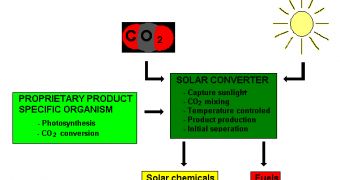Joule managed to obtain the 2011 Wall Street Journal Technology Innovation Award for following its ambitious, eco-friendly objectives throughout this year. The company's officials are excited that the enterprise got the Silver award across all the 16 categories , and succeeded to make its name visible among all the other 600 participants from all across the globe.
Joule's work and innovation were recognized for their importance on the market of alternative fuel production.
“We are honored to be the Wall Street Journal’s choice for the most innovative energy company, and to be recognized even beyond our industry as one of the world’s top innovators overall, “ declared Bill Sims, President and CEO of Joule.
Researchers said that the prize went to its rightful winner. According to specialist in this field, the innovative techniques provided by the company are able to change the rules and conditions in the industry of efficient, green fuel.
Further more, if their breakthroughs will be applied on a larger scale, the enterprise could be soon known as a game changer on the market.
The fuel Joules provides could represent the perfect alternative for petroleum, since it is earth-friendly, much cheaper, and also, it does not depend on biomass.”
According to Sims, the project started when they came up with the idea of converting sunlight into fuel without dealing with raw material feedstocks as compounds.
Later on, the company worked to improve the initial technology. Nowadays, the company takes care of all details, so that they be able to start the commercial production in 2013.
Joule's target is to provide approximately 15,000 gallons of diesel and 25,000 gallons of ethanol per acre every year.
According to their strategy, production costs seem more that reasonable, reaching $20/bble and $0.60/gallon respectively, including subsidies.
In order to choose a winner, the judges tested every innovative product.
They wanted to make sure that the awarded company will be able to launch on the market a brilliant idea, which will deal with the existing infrastructure while still remaining original, effective and eco-friendly.

 14 DAY TRIAL //
14 DAY TRIAL //